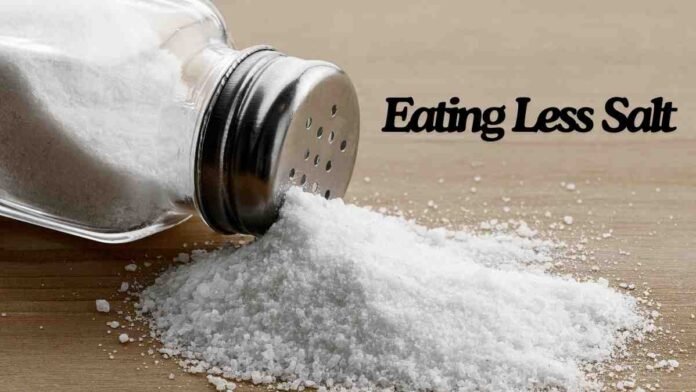Heart health is crucial for overall health, and nutrition plays an important part in maintaining it. One important aspect is salt consumption; too much salt can cause high blood pressure and raise the risk of heart disease, stroke, and other cardiovascular problems.
The Link Between Salt and Heart Health
- Raises Blood Pressure (Leads to Hypertension): When you ingest too much salt, your body retains more water to help balance the excess sodium. The increased amount of water in the circulation elevates blood pressure. High blood pressure, often known as hypertension, places additional strain on the heart and arteries, causing them to work harder than usual. Over time, this can weaken the heart, damage blood vessels, and result in catastrophic illnesses including heart attacks or strokes.
- Strains the heart, raising the risk of cardiovascular disease: High blood pressure causes the heart to beat more forcefully in order to circulate blood. Continuous overwork can cause the heart muscle to thicken, weaken, or stiffen, reducing its efficiency. A stressed heart is more susceptible to heart failure and other cardiovascular disorders, such as coronary artery disease.
- Triggers fluid retention, which affects heart and kidney function: High sodium levels cause the body to retain extra fluid, resulting in oedema and bloating. This excess fluid not only raises blood pressure but also puts extra strain on the heart and kidneys. Over time, fluid retention can lead to heart difficulties and impair the kidneys’ capacity to filter waste, deteriorating both heart and renal function.
Benefits of Eating Less Salt:
- Reduces Blood Pressure: Consuming less salt helps to maintain normal blood pressure levels.
- Lowers Heart Disease Risk: Consuming less salt reduces the likelihood of having a heart attack or a stroke.
- Boosts Overall Health: Increases energy and decreases bloating by avoiding fluid retention.
Simple Tips to Cut Down on Salt:
- Cook at home: Control your salt consumption by cooking your own meals.
- Check the labels: Choose foods labelled low in sodium.
- Use herbs and spices. Replace salt with delicious ingredients such as garlic and lemon.
- Avoid processed meals: These frequently include secret high salt content.
- Reduce gradually: Slowly reduce your salt consumption to allow your taste buds to adjust.
Conclusion
Reducing salt intake is critical for heart health and disease prevention. By following easy sodium-reduction recommendations, you can protect your heart and enhance your overall health. Begin making tiny adjustments today to have a healthy lifestyle.



